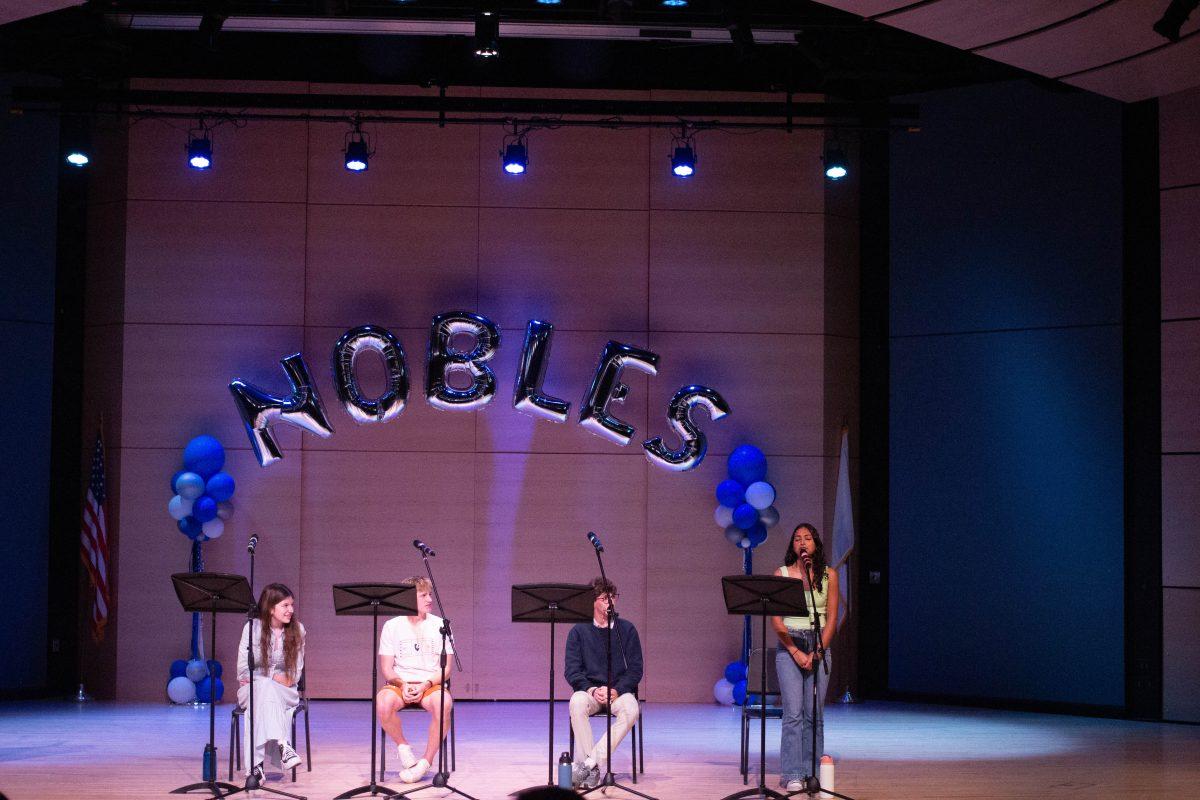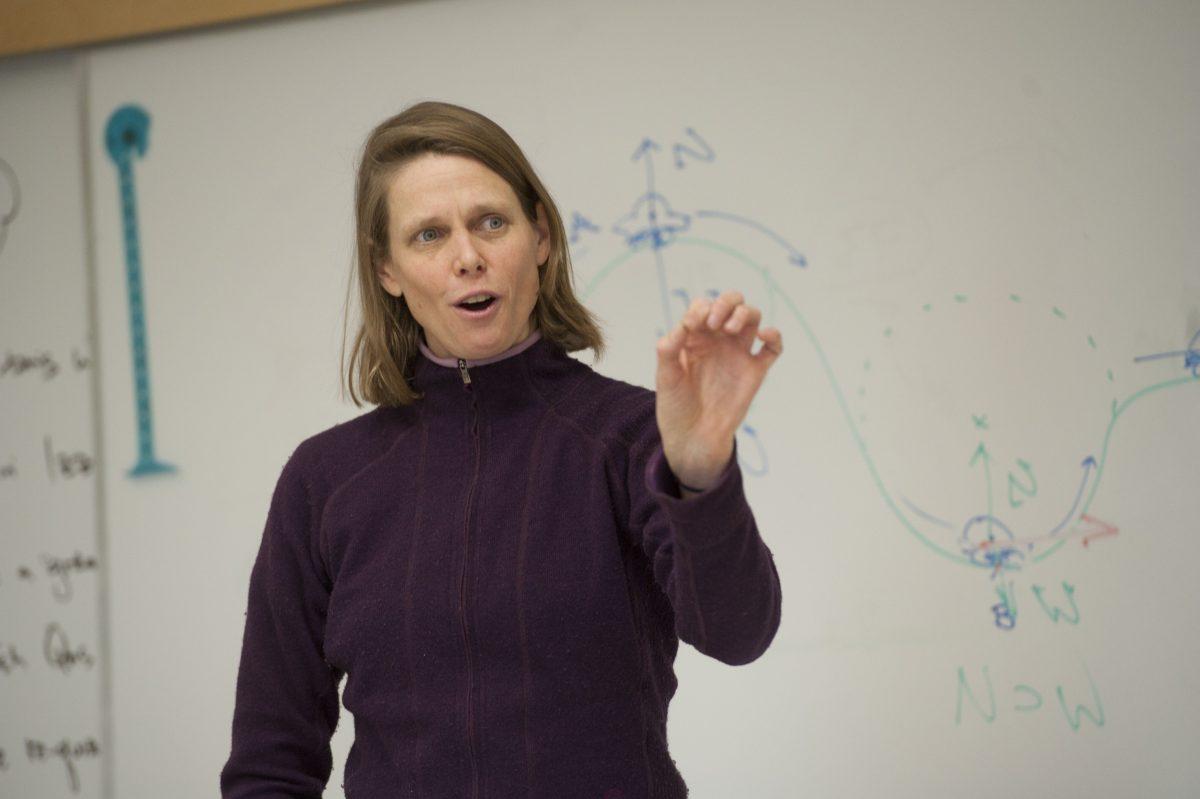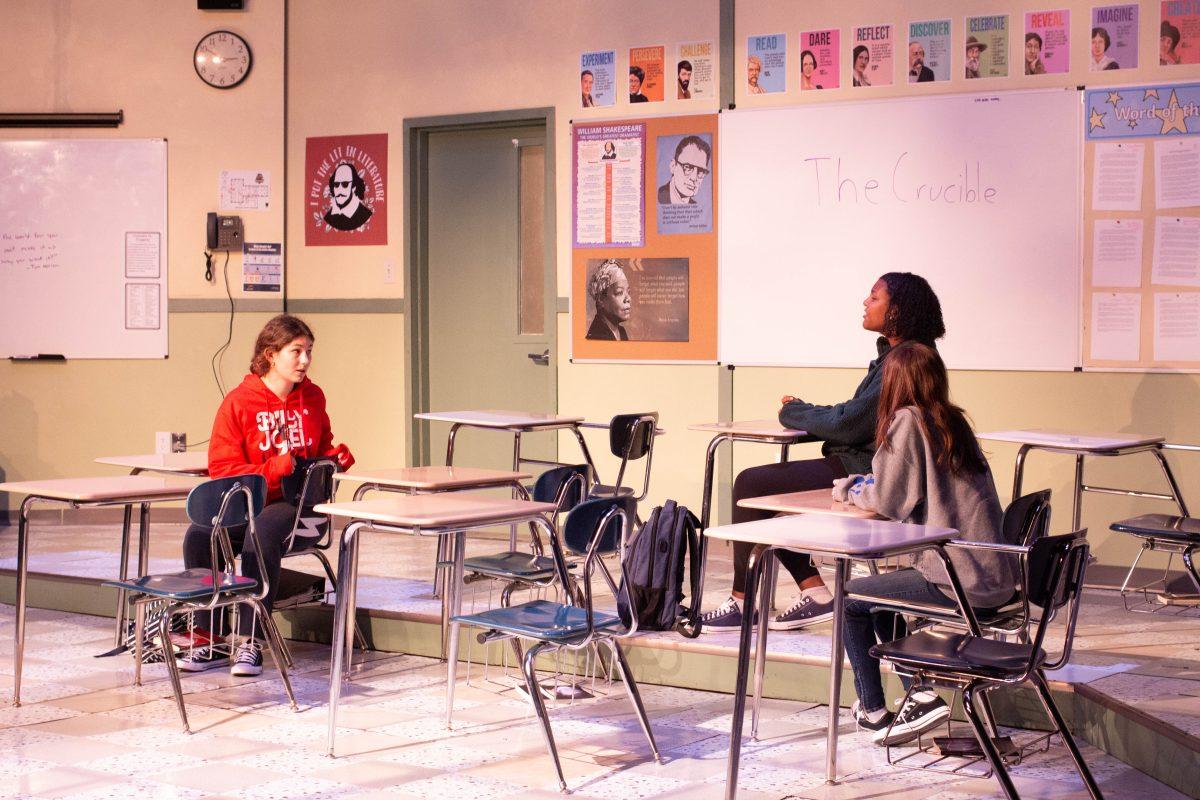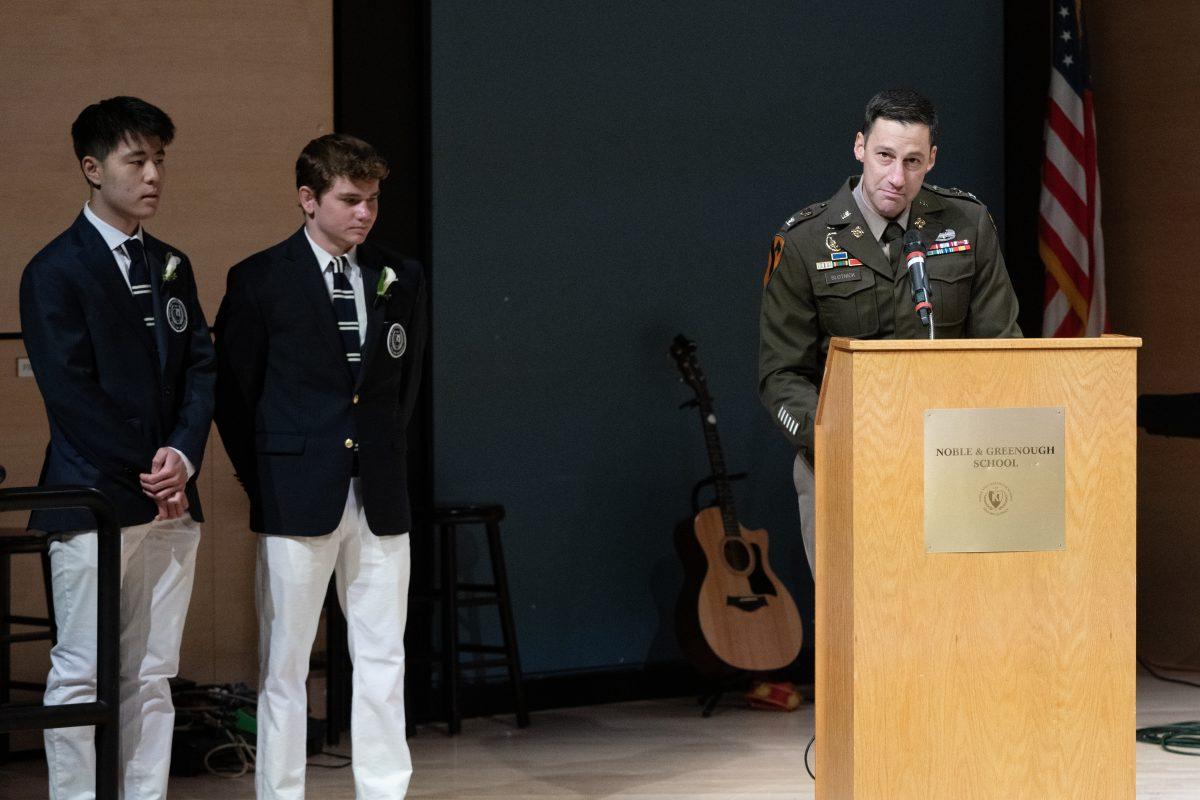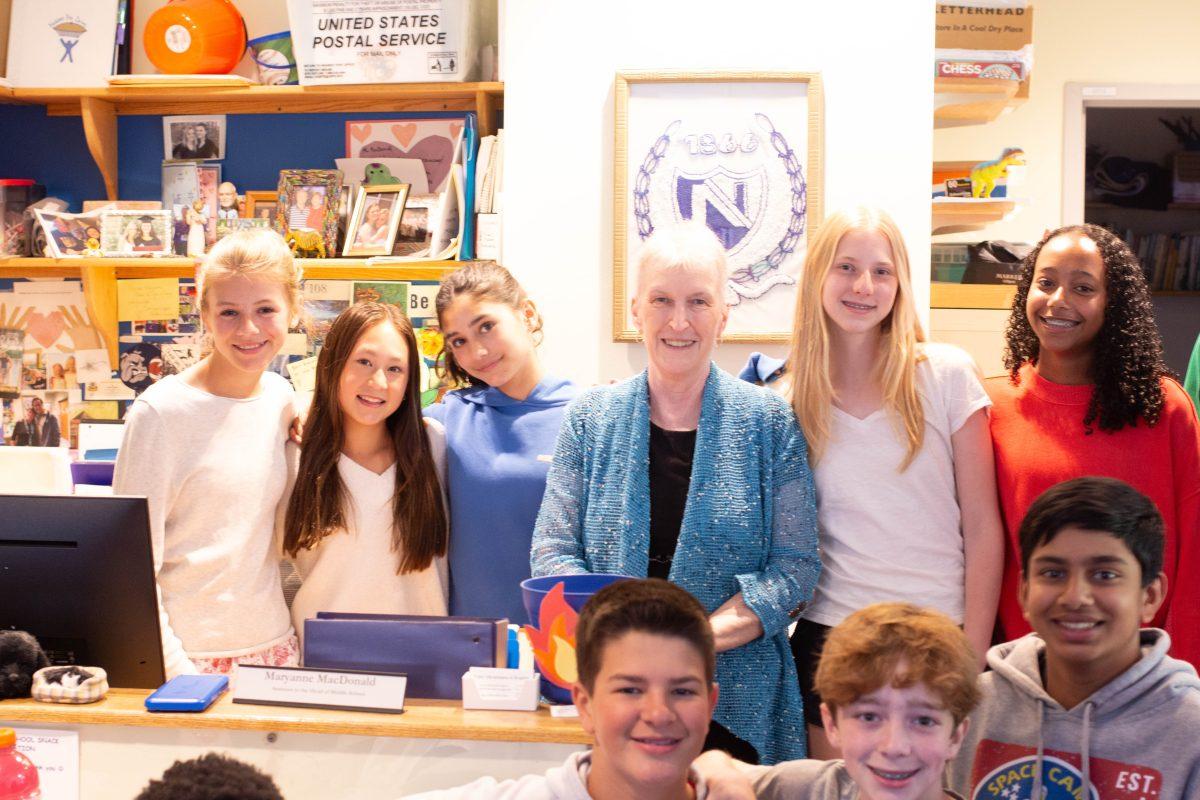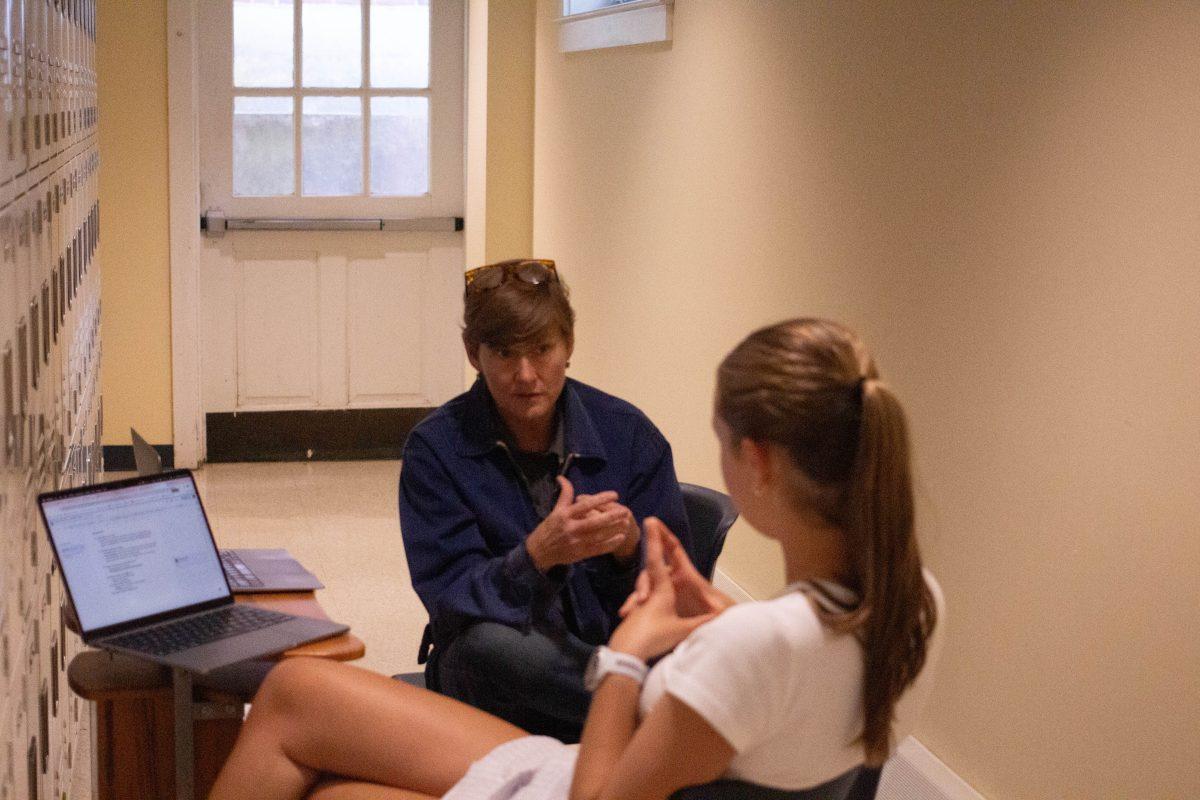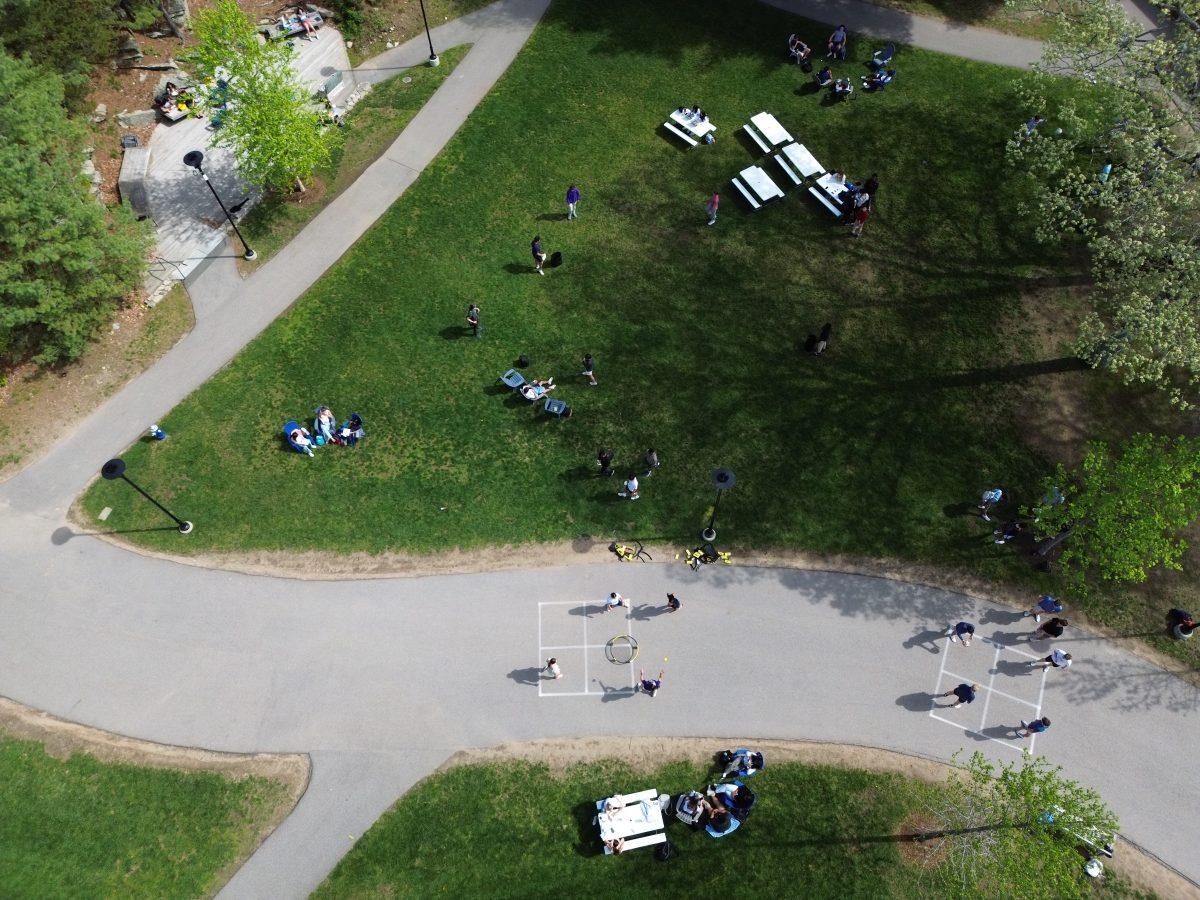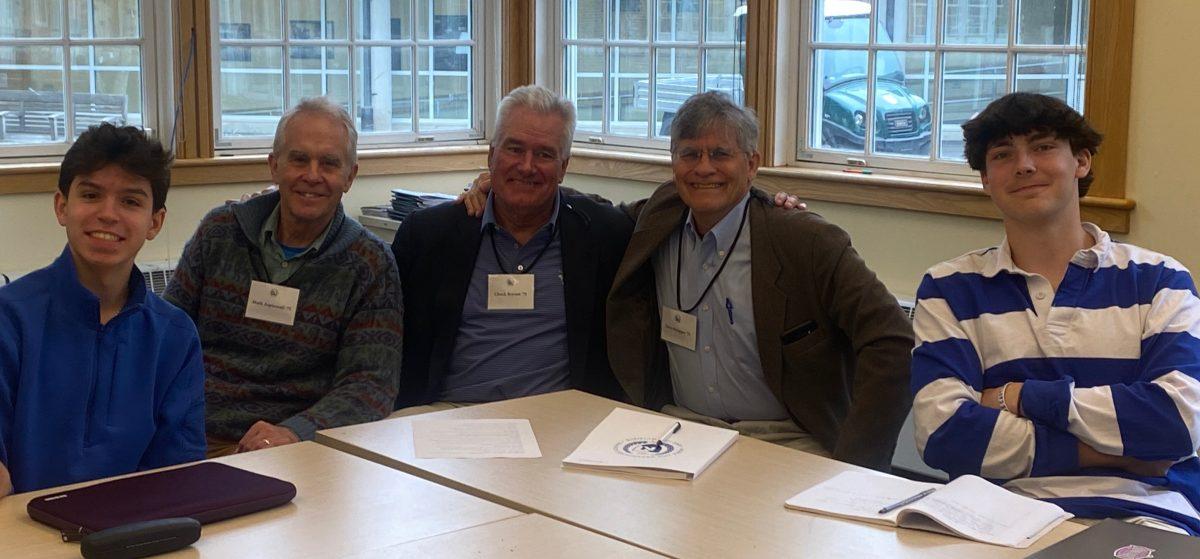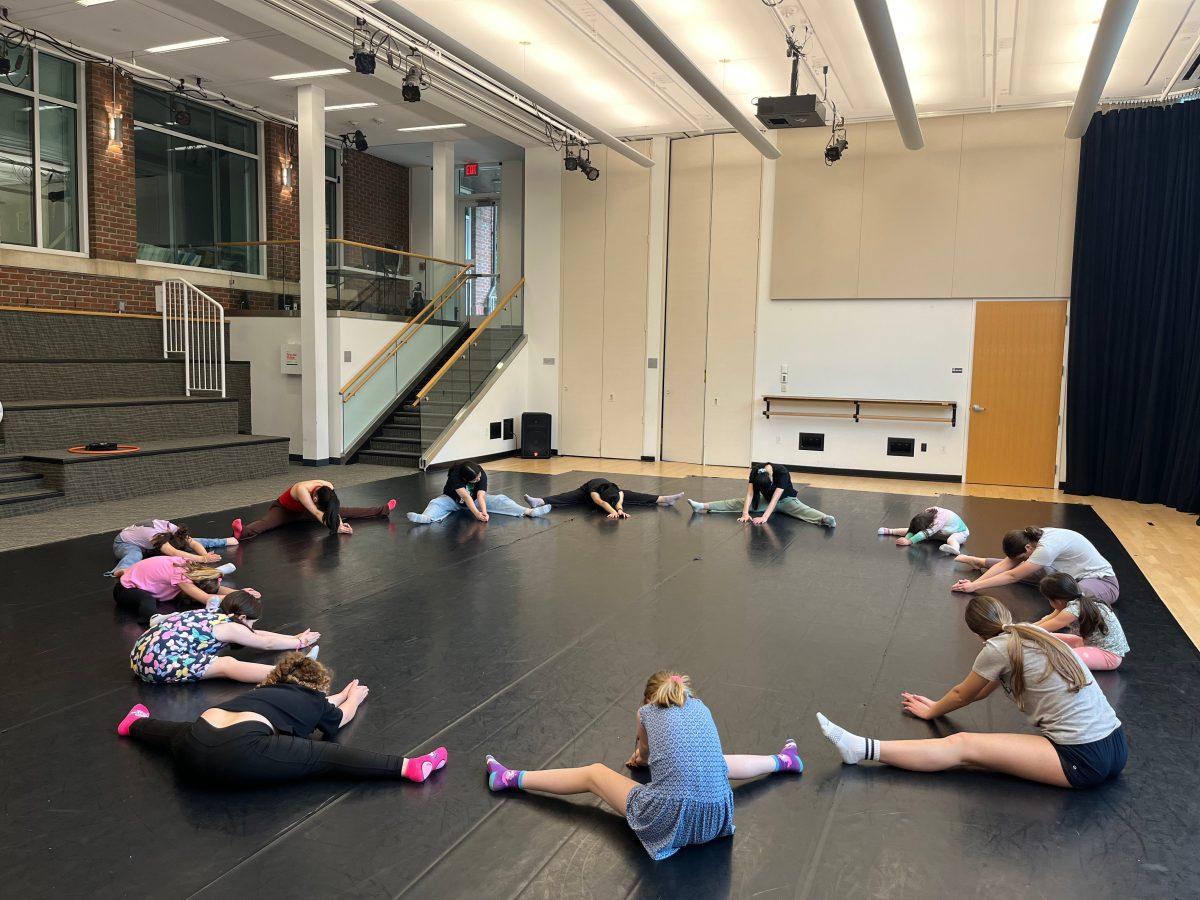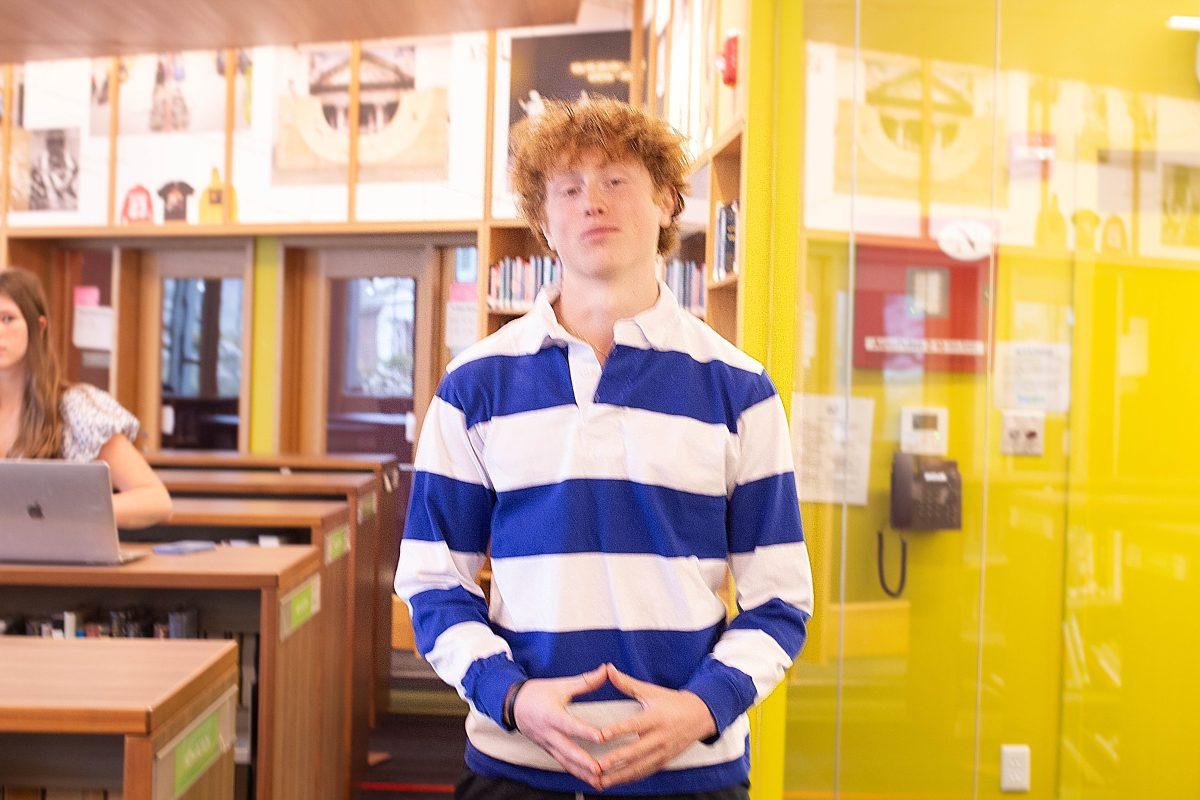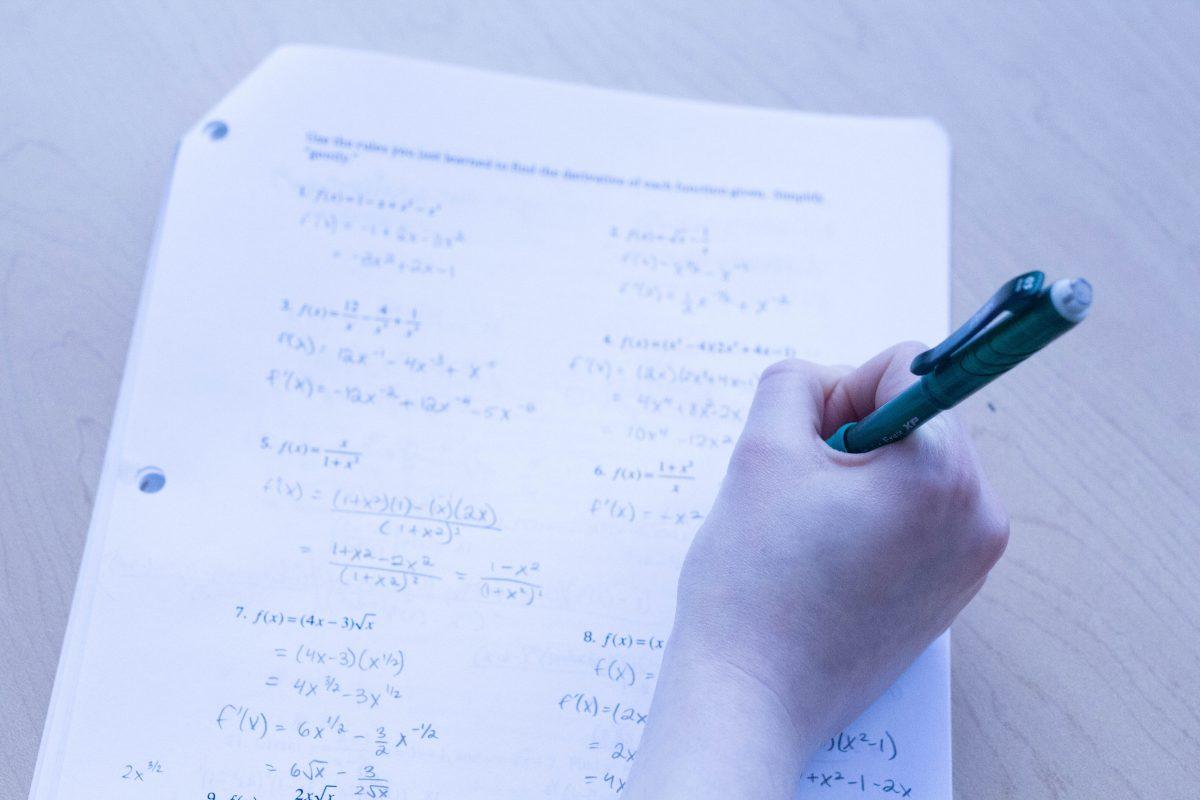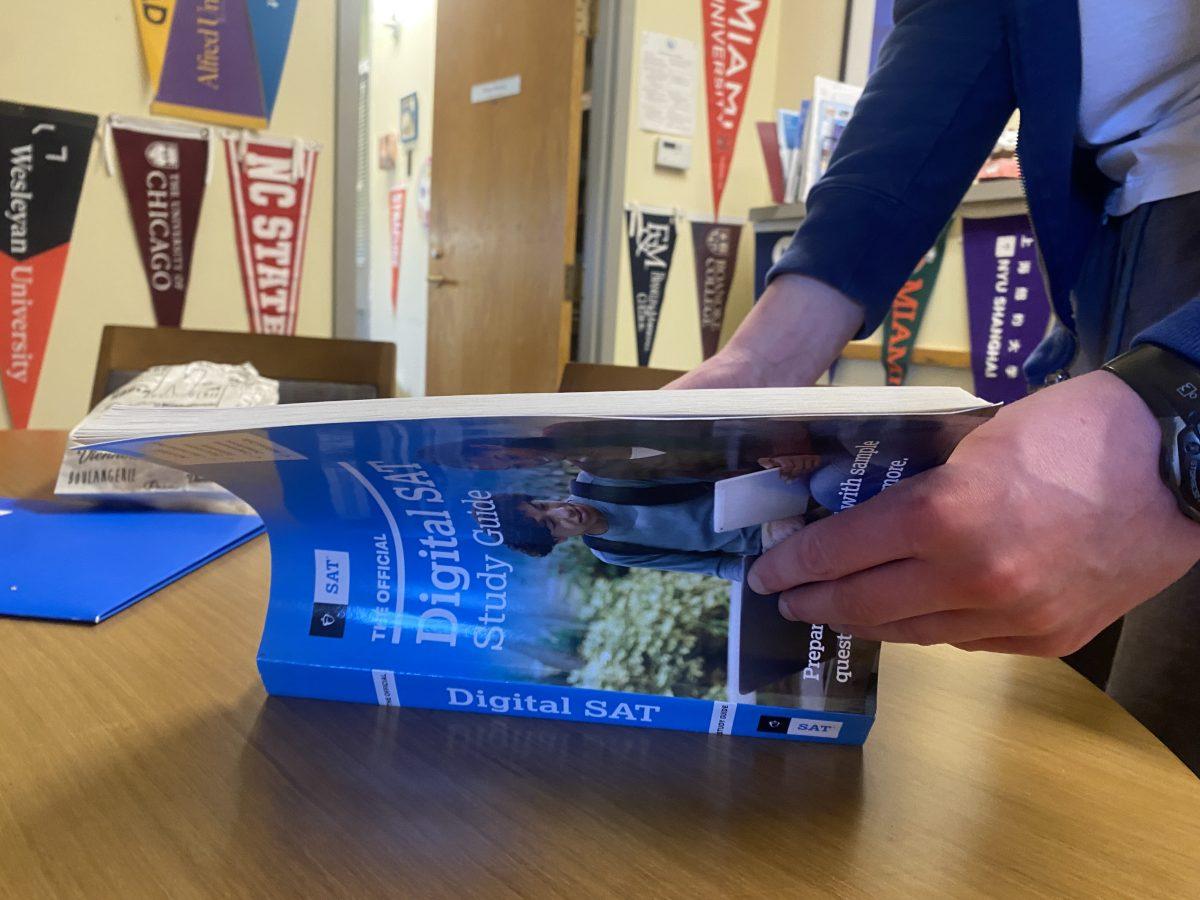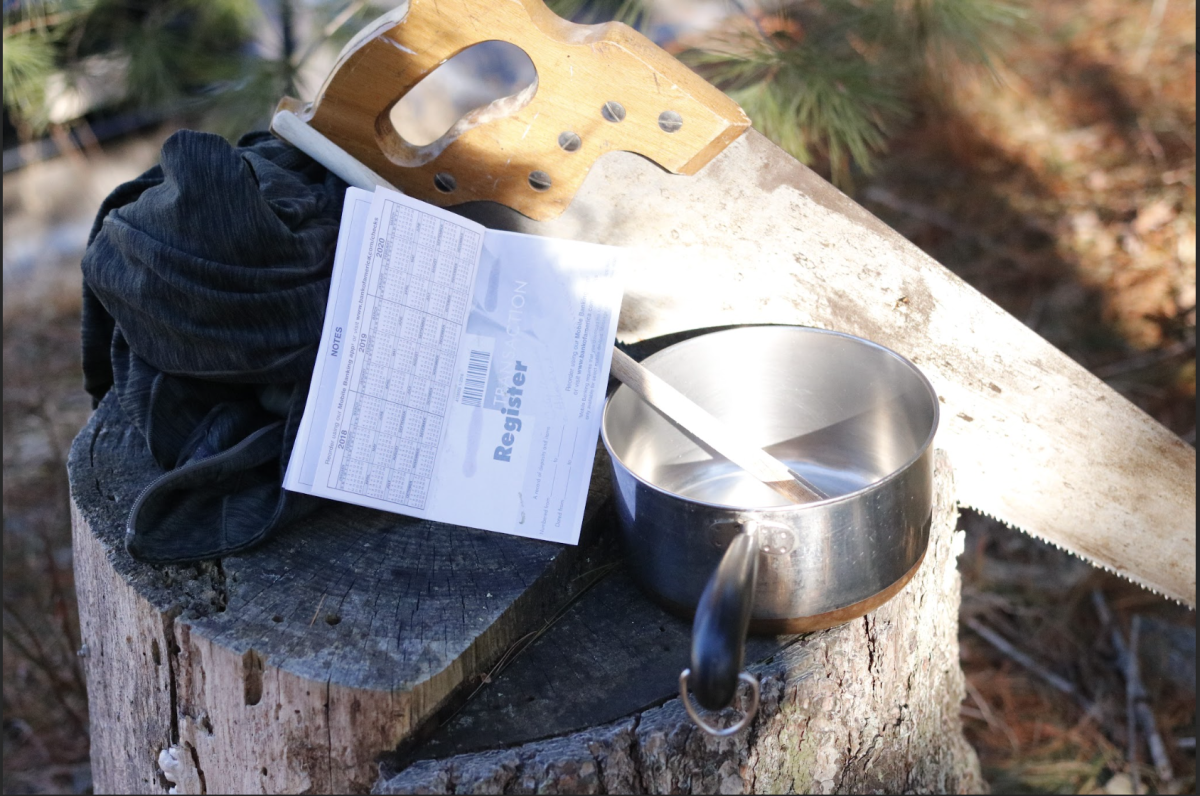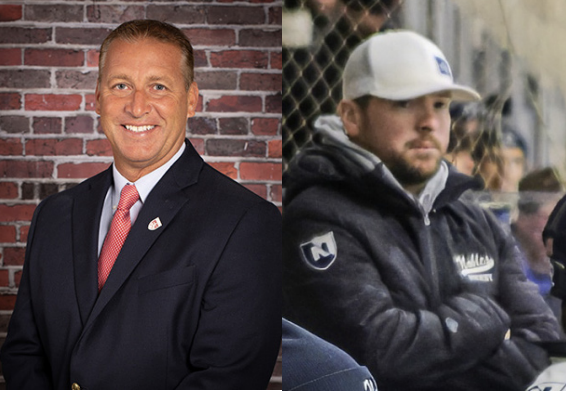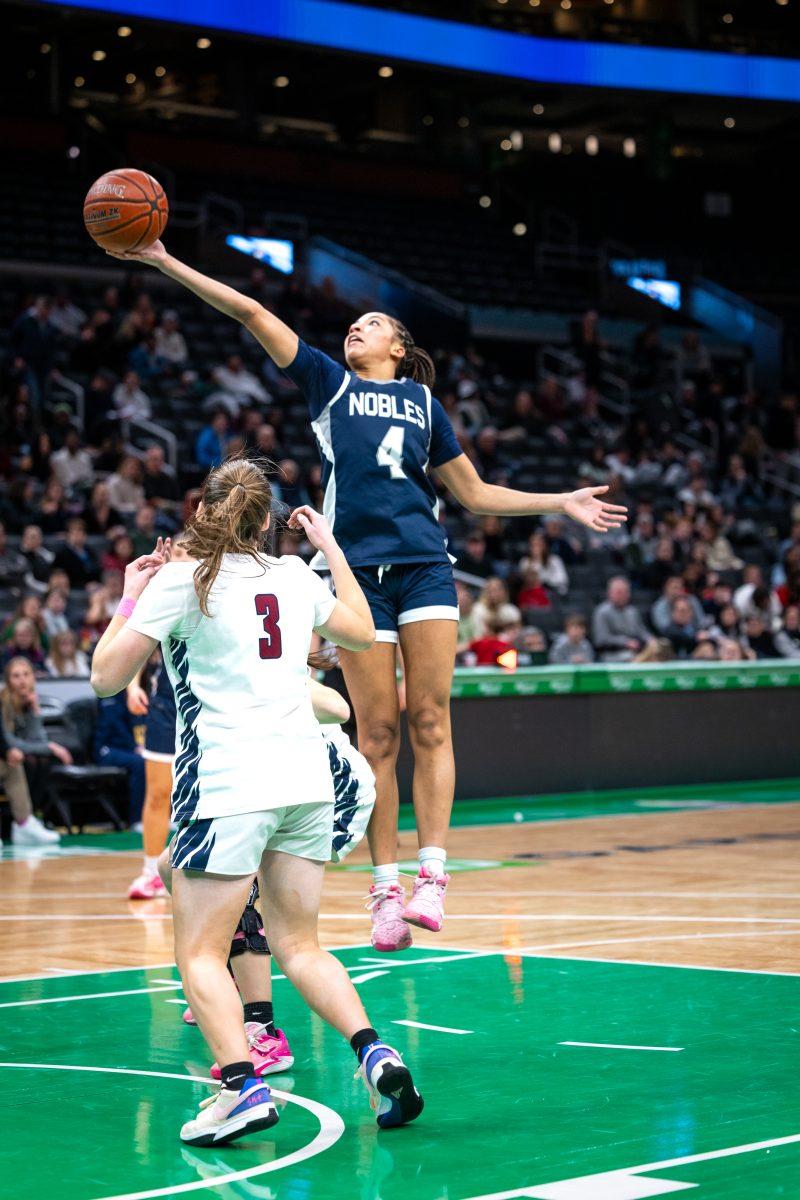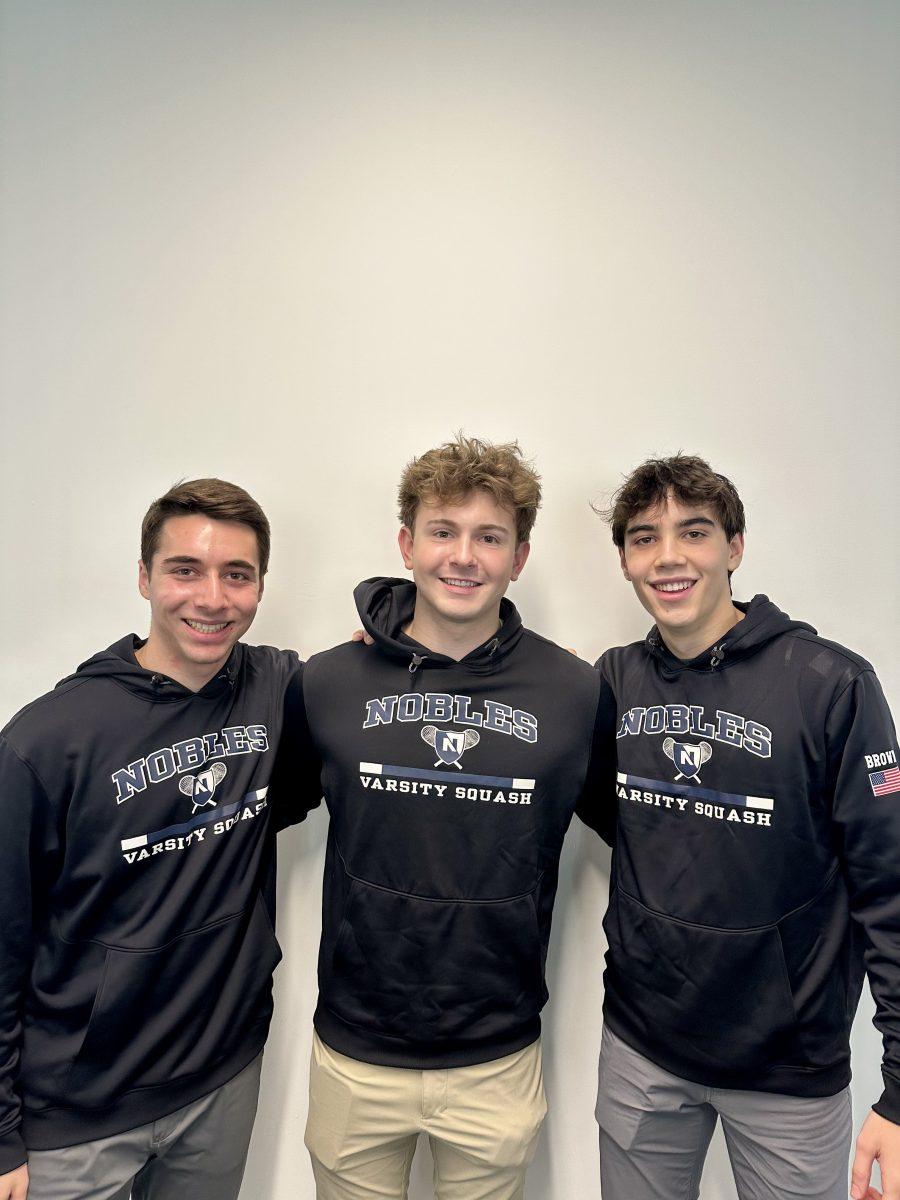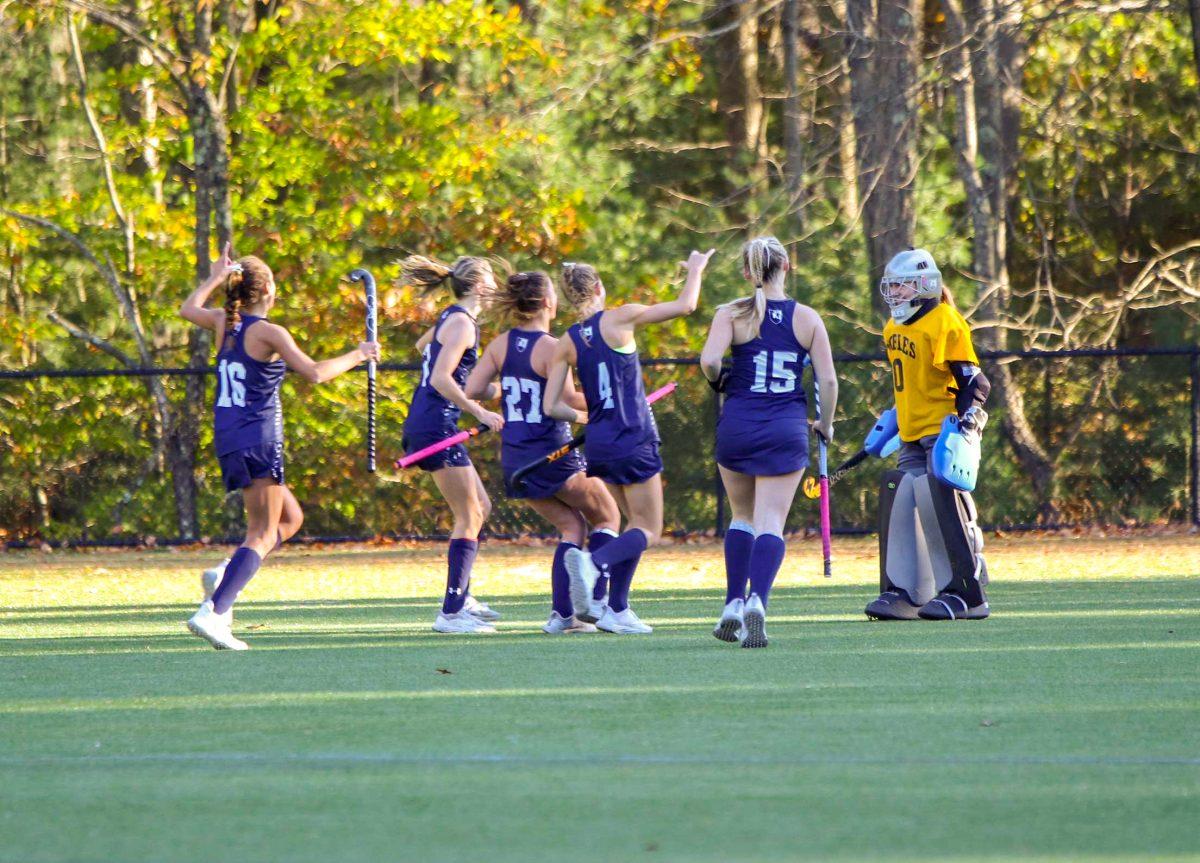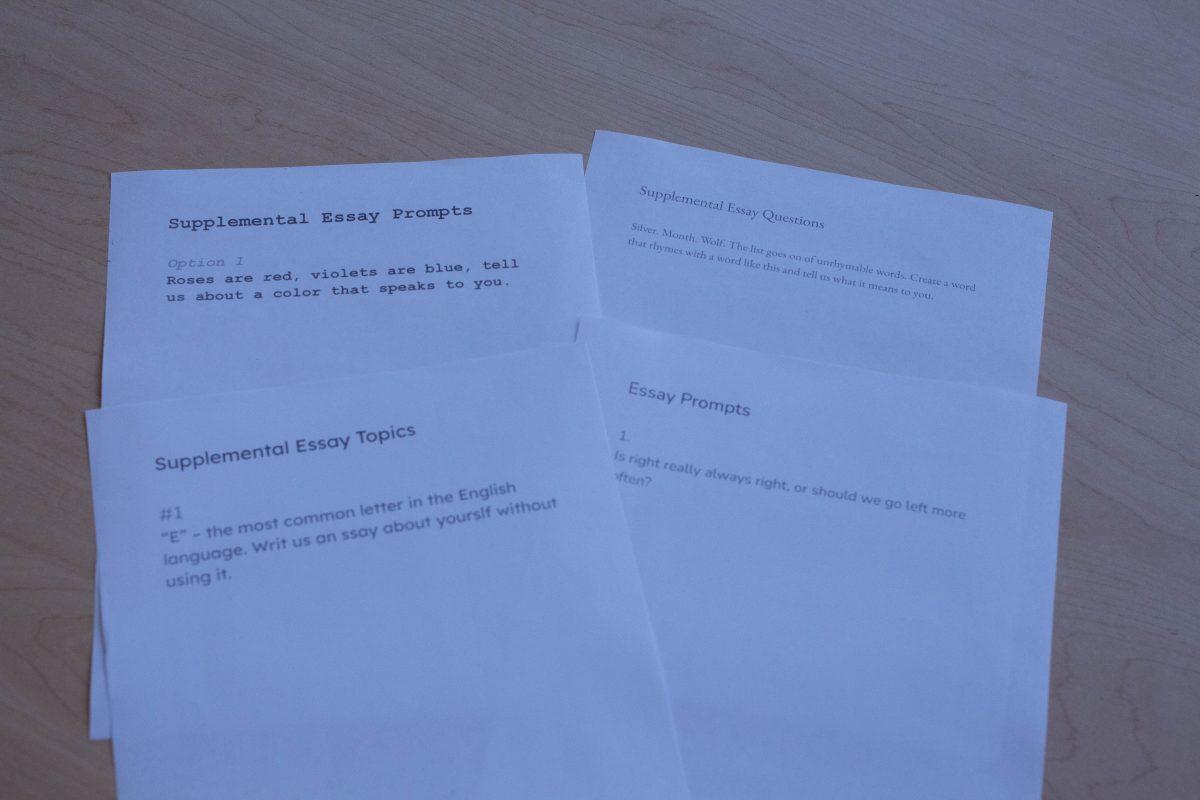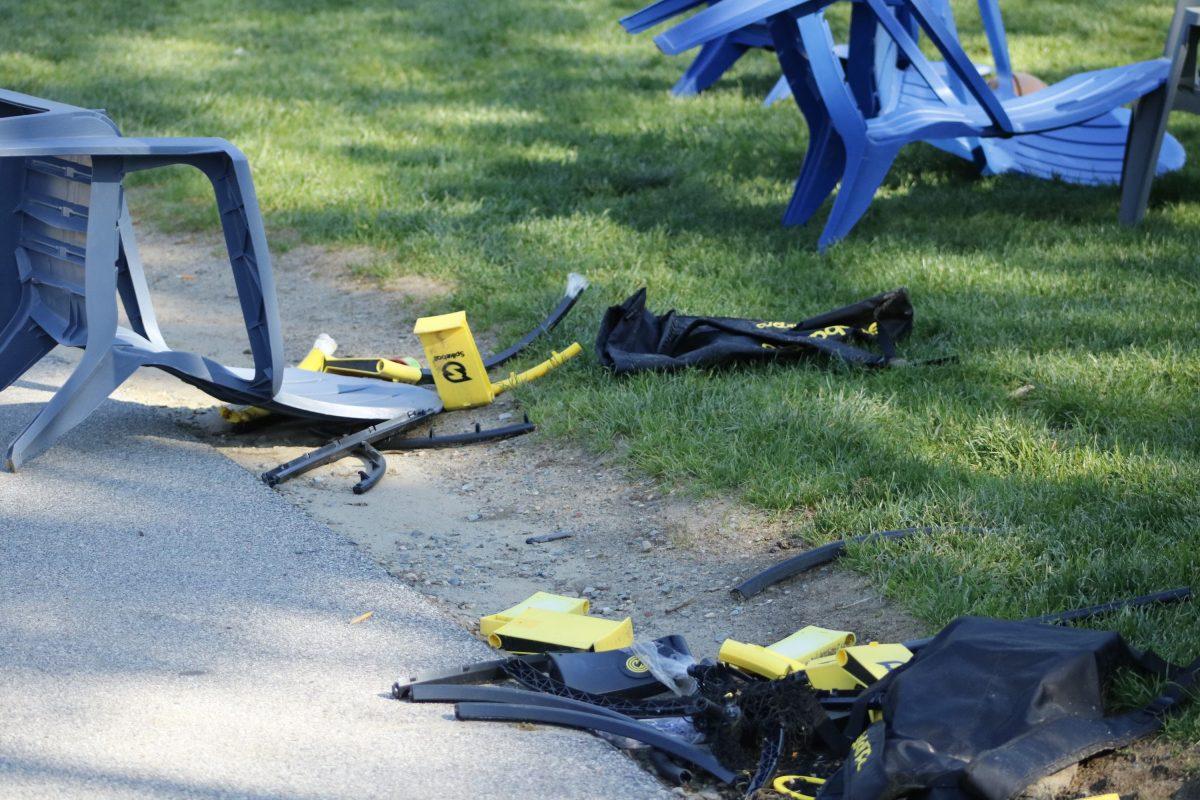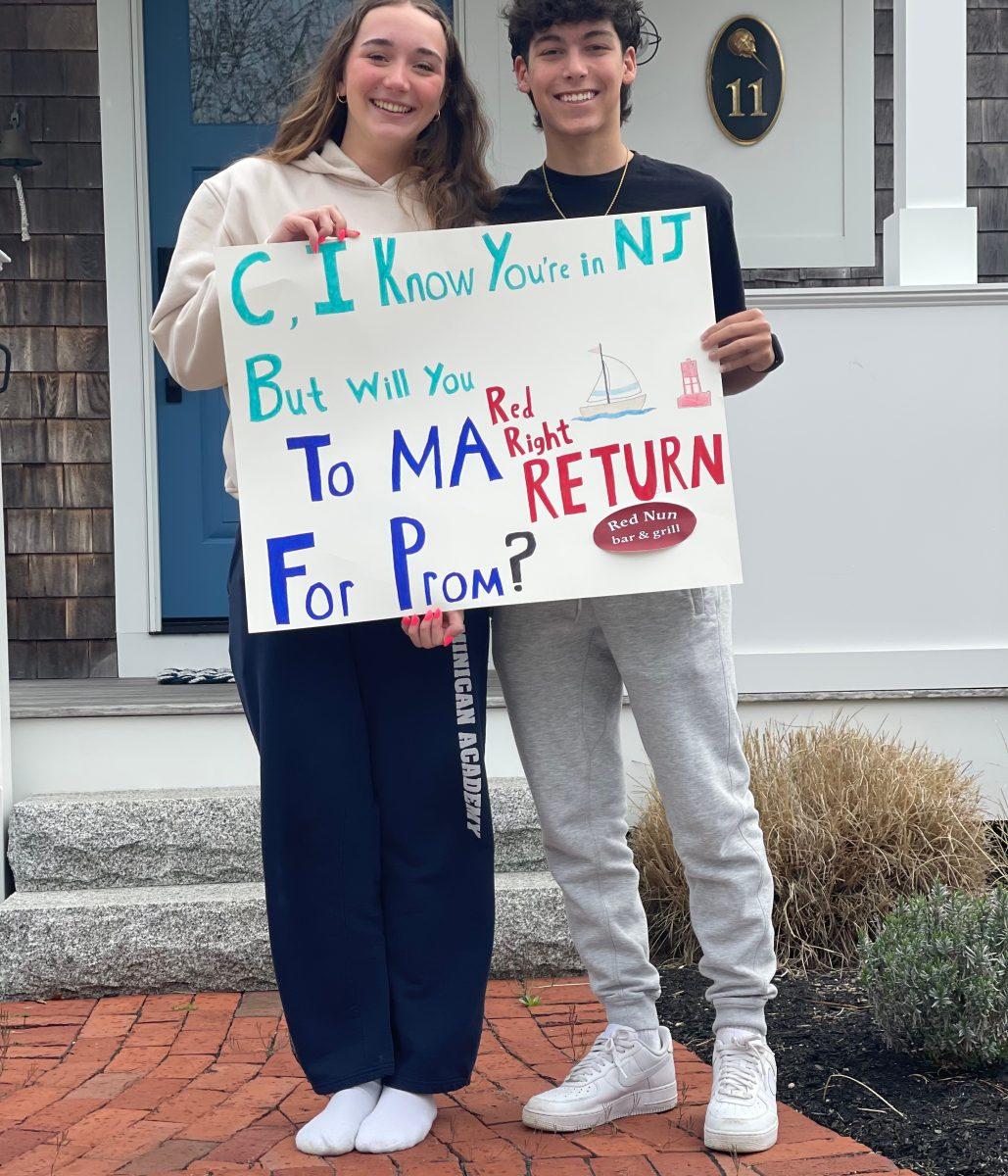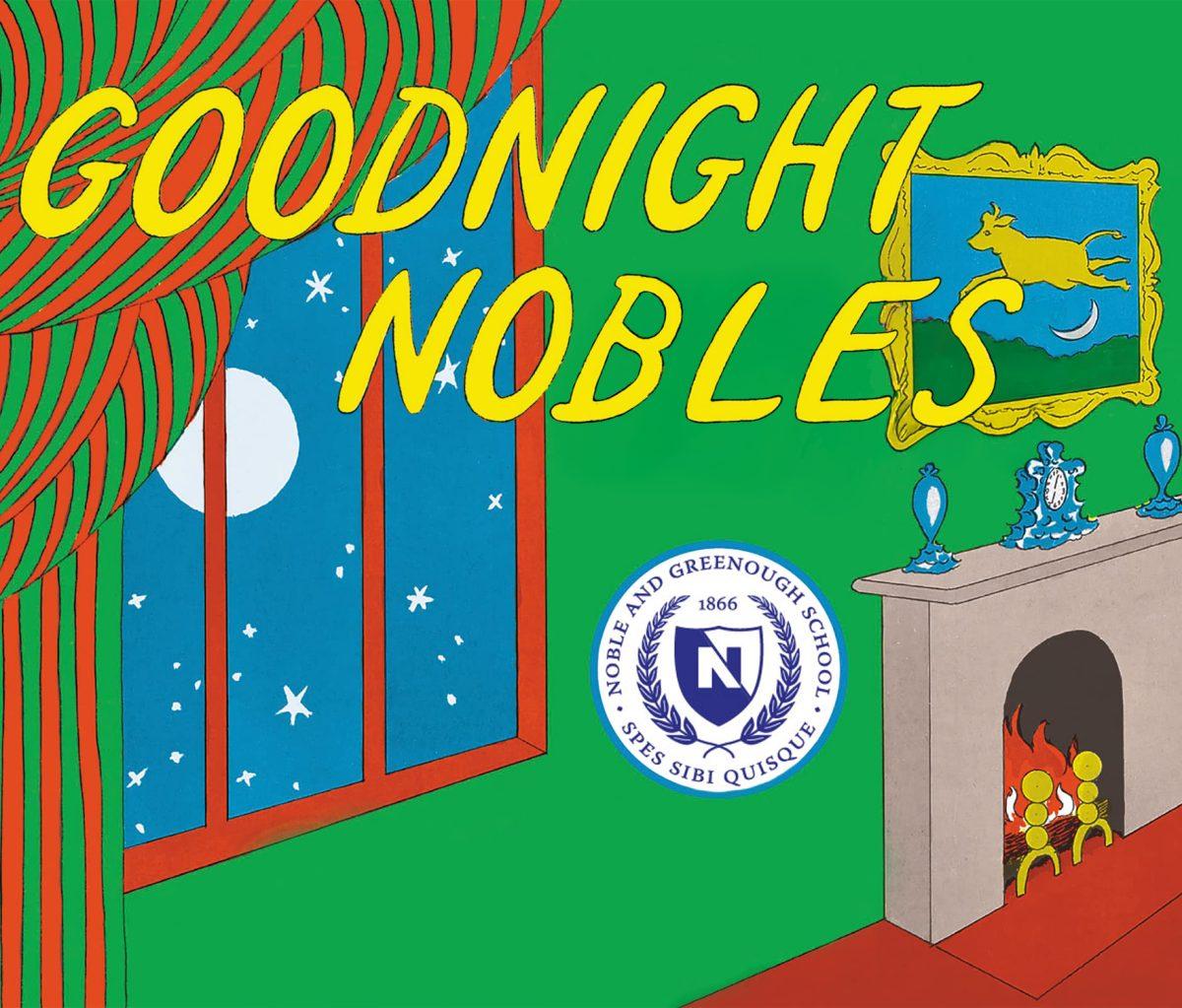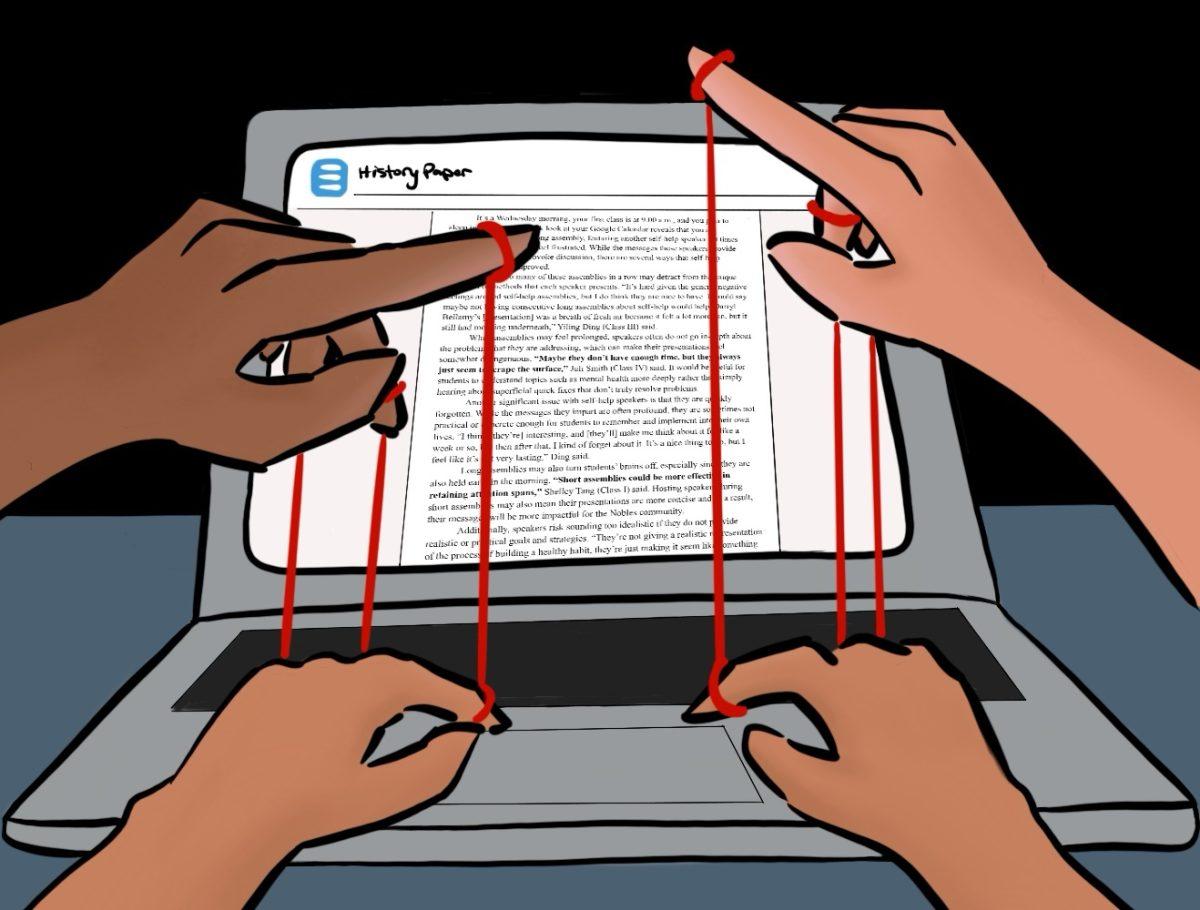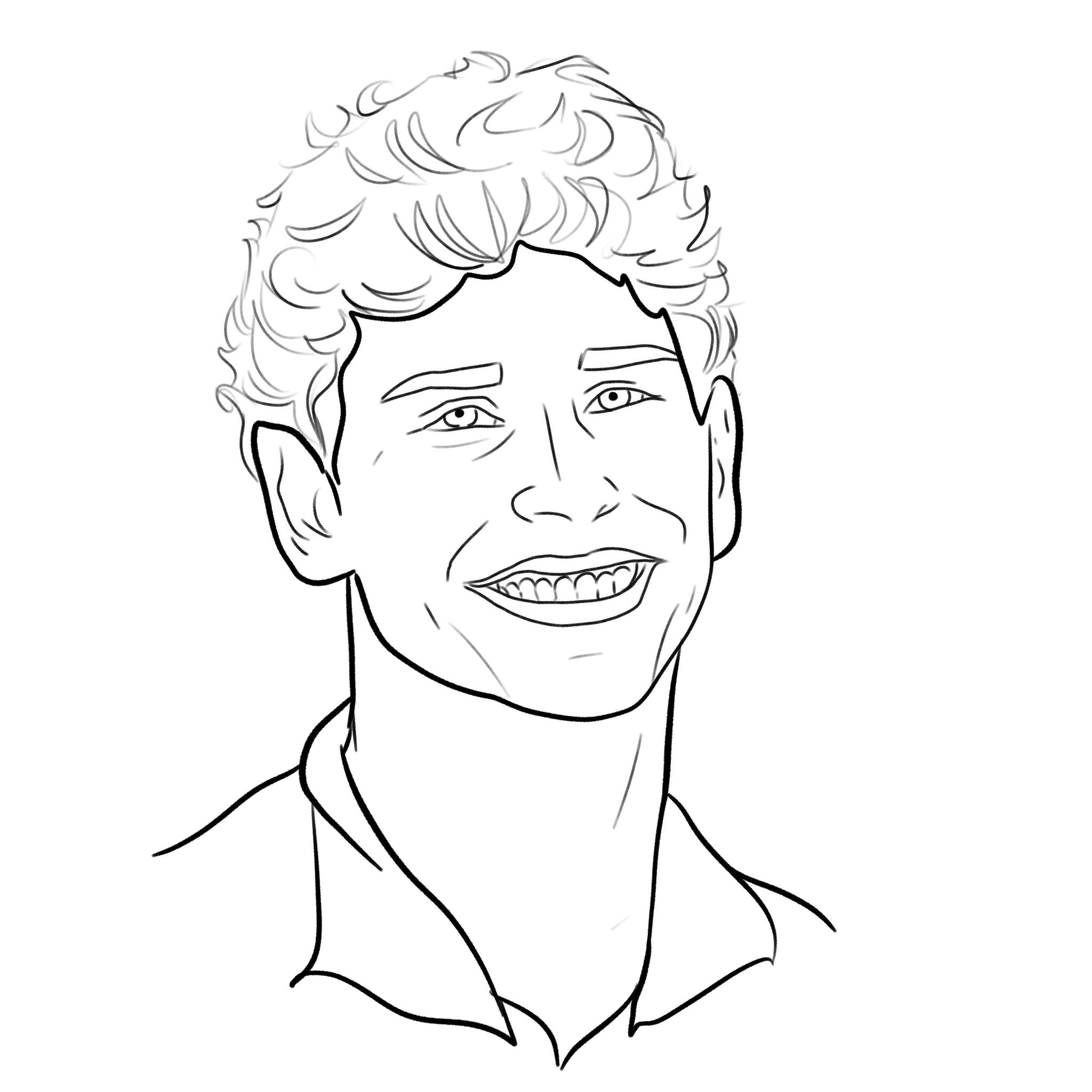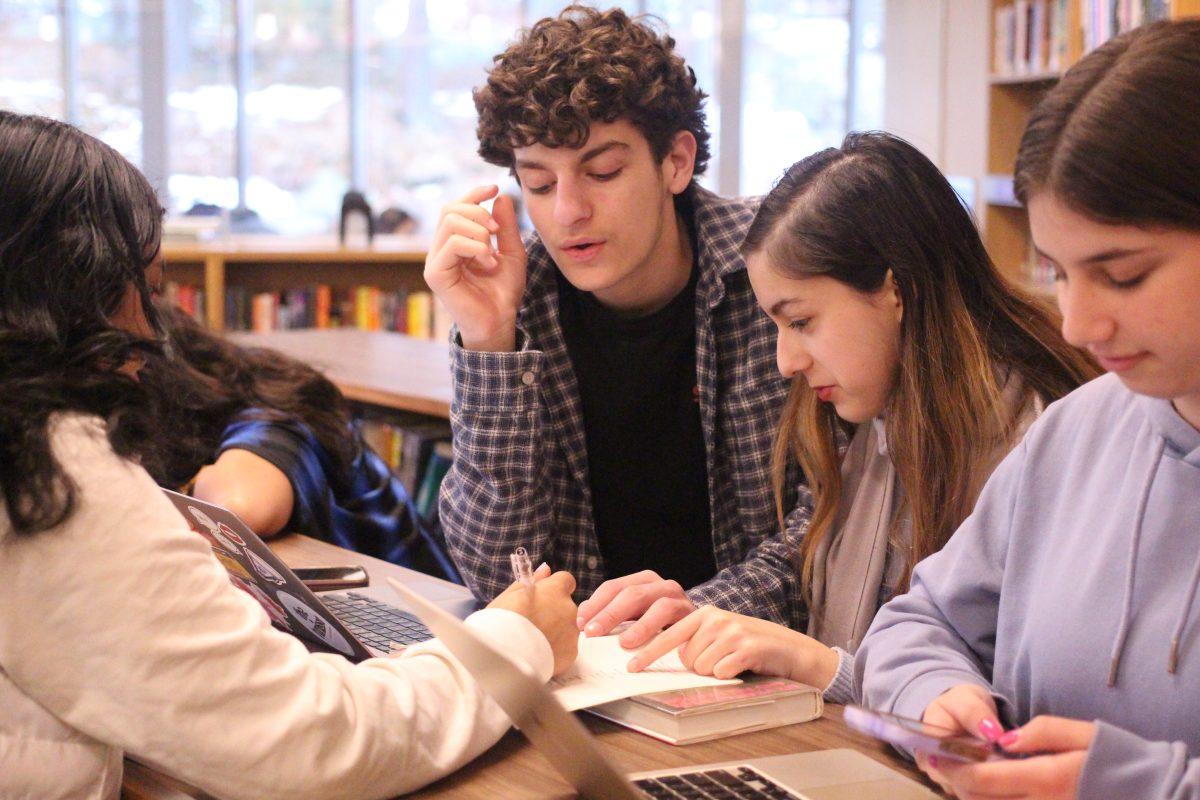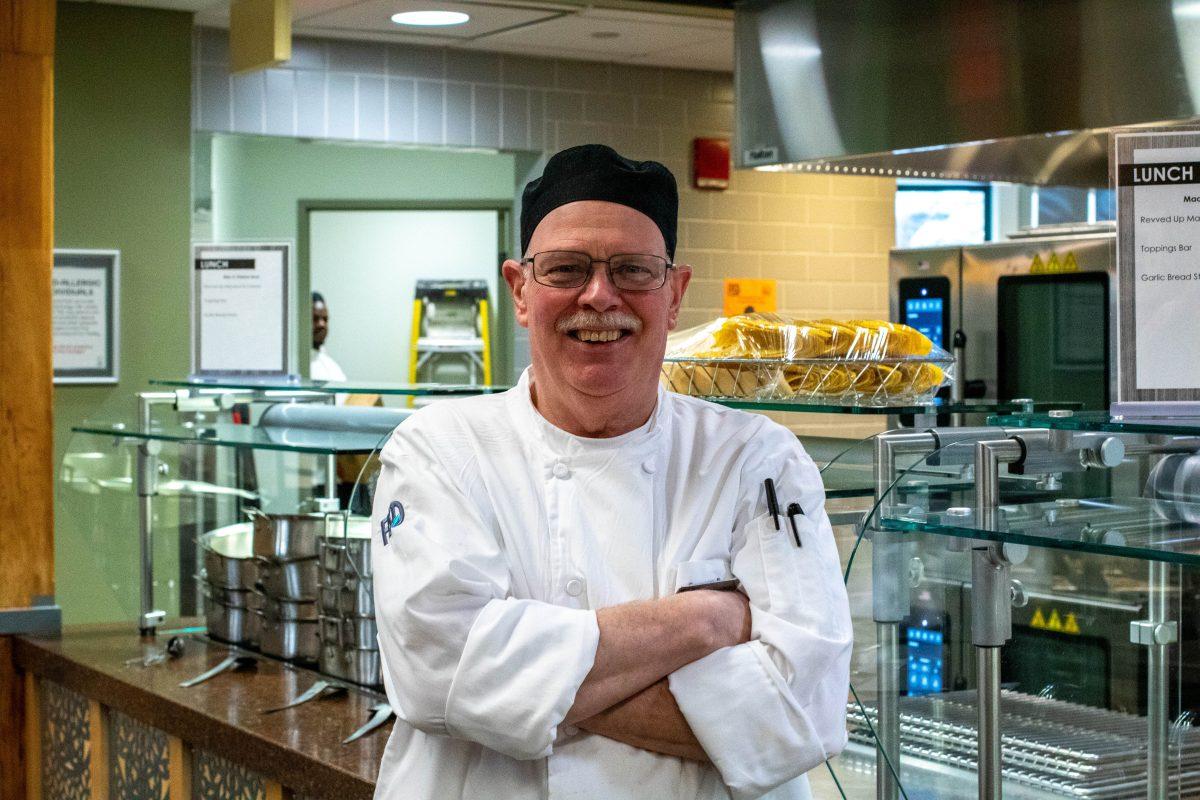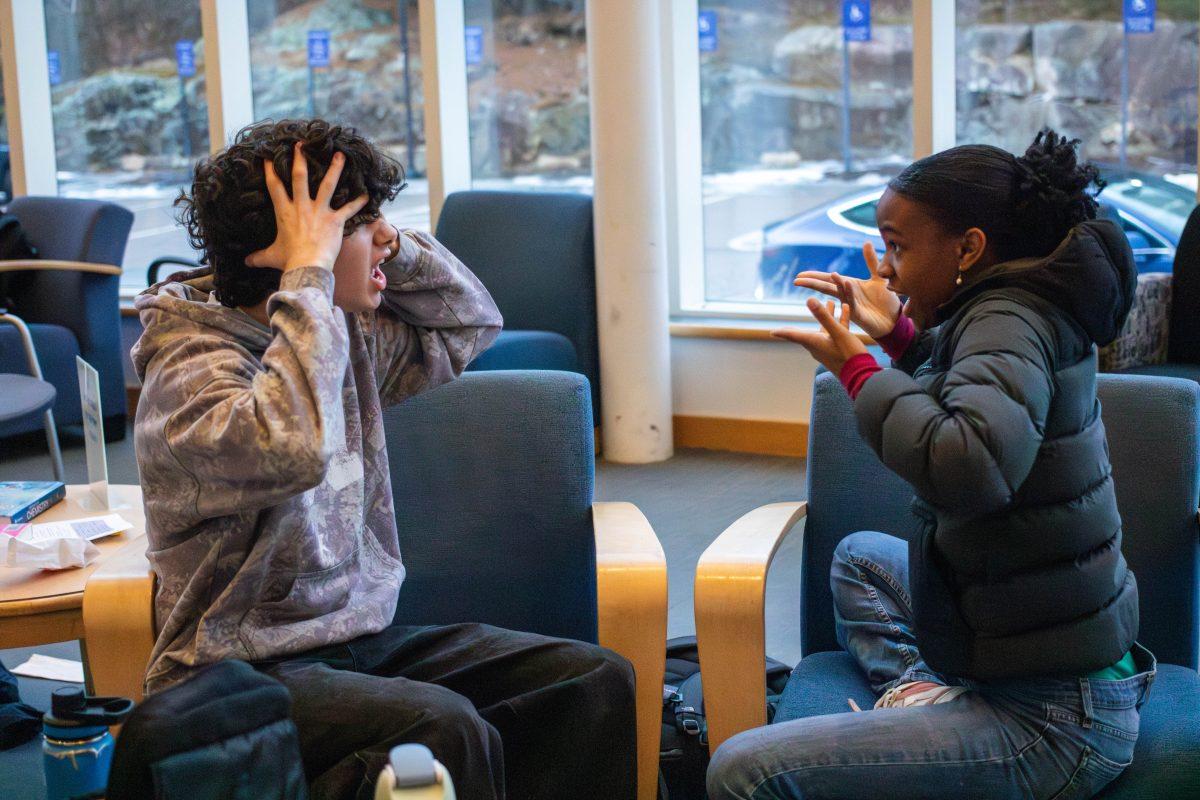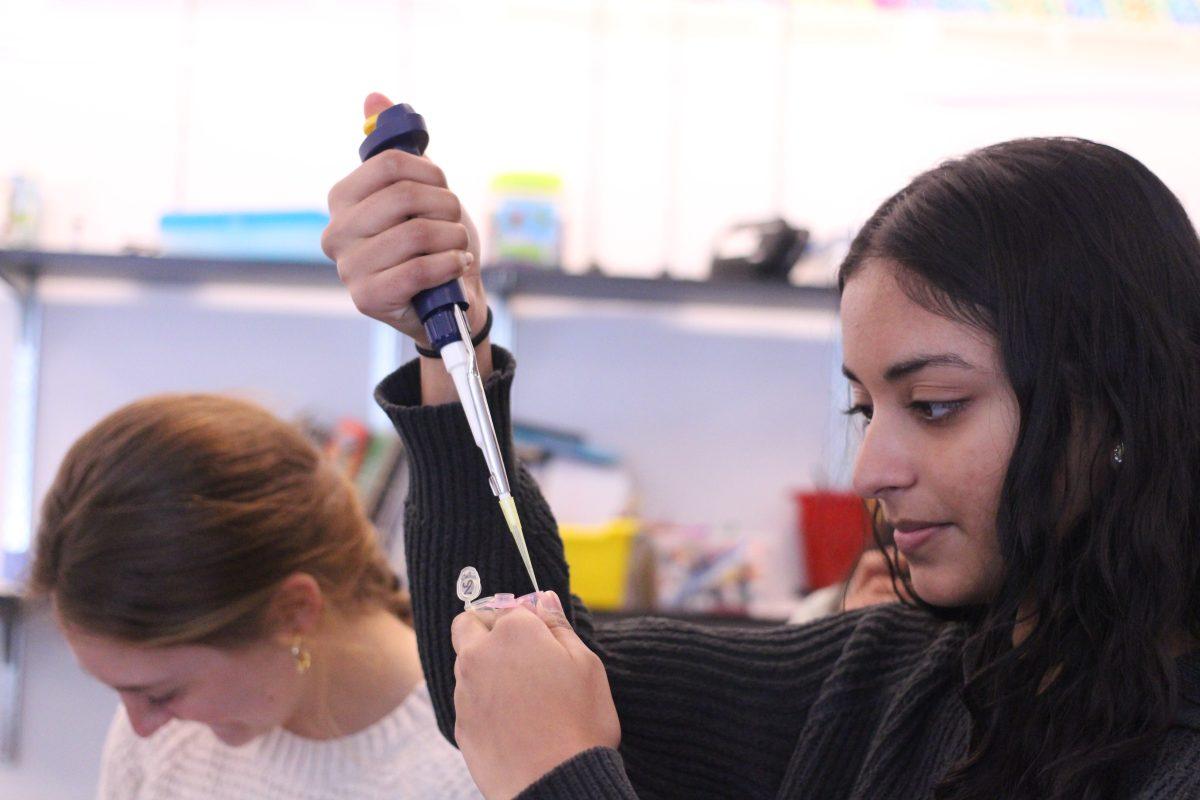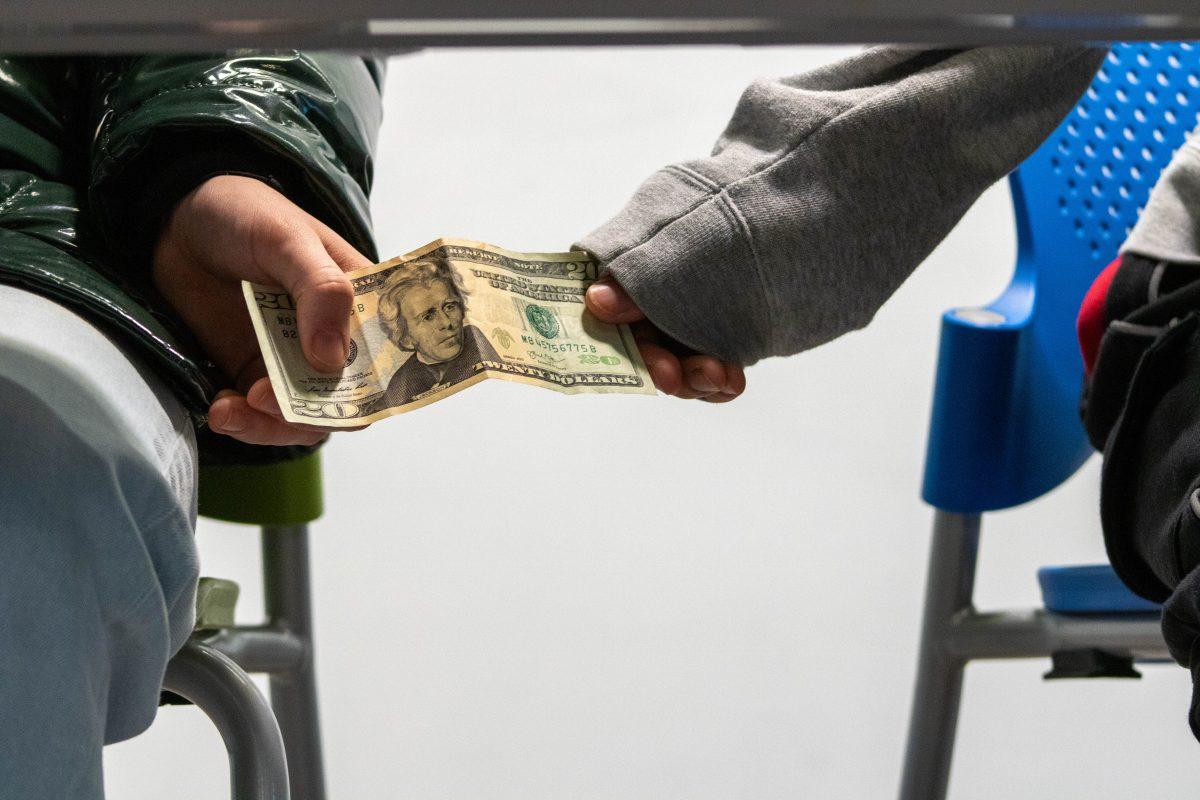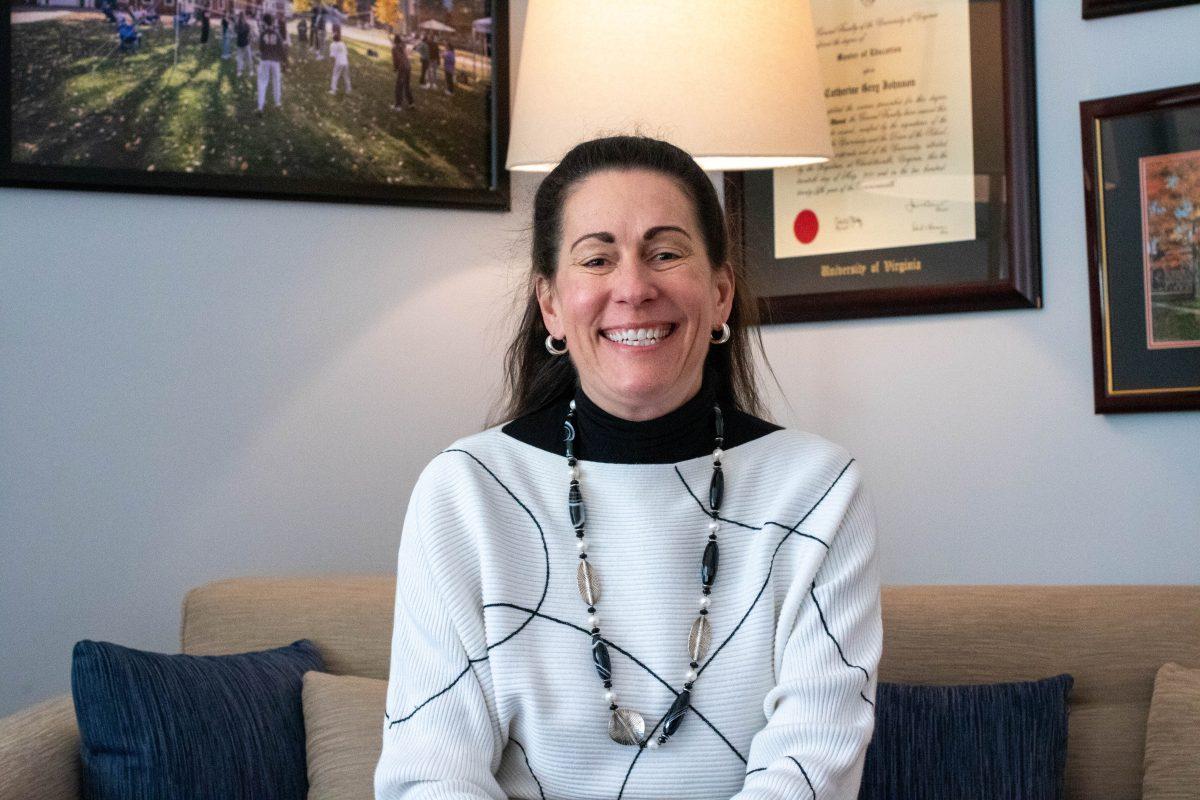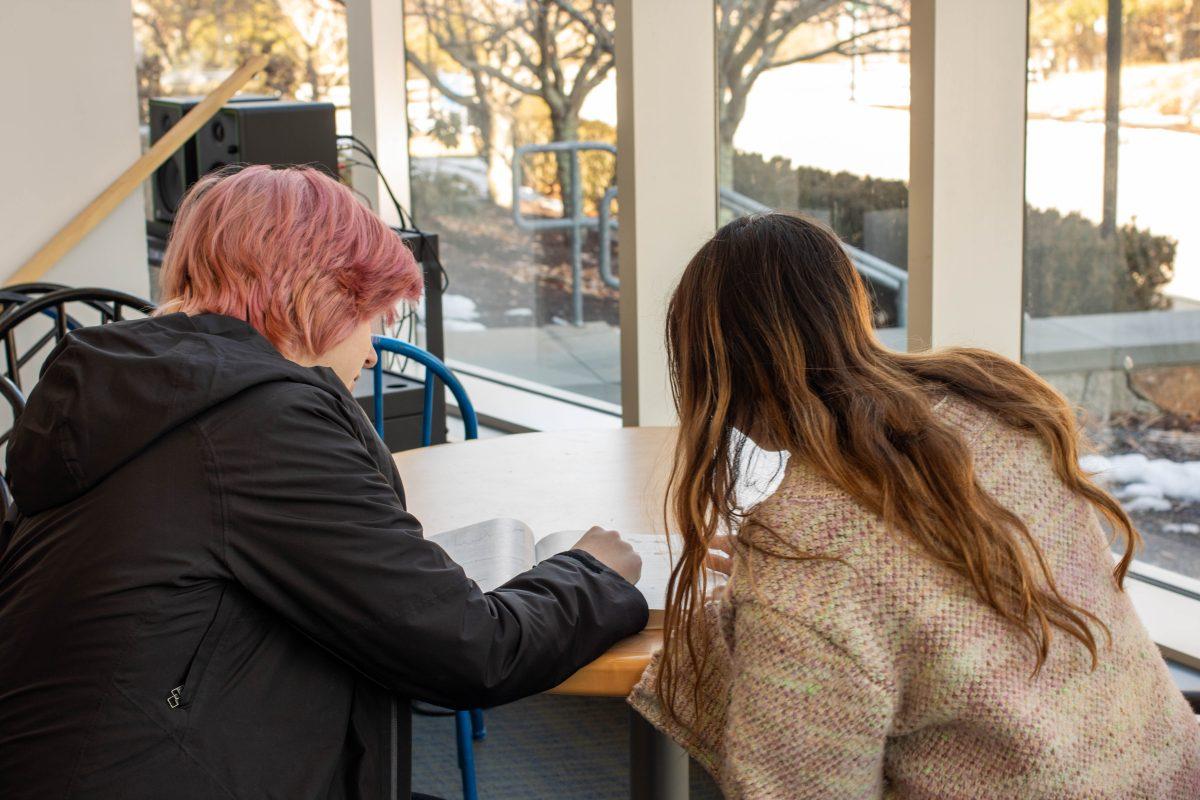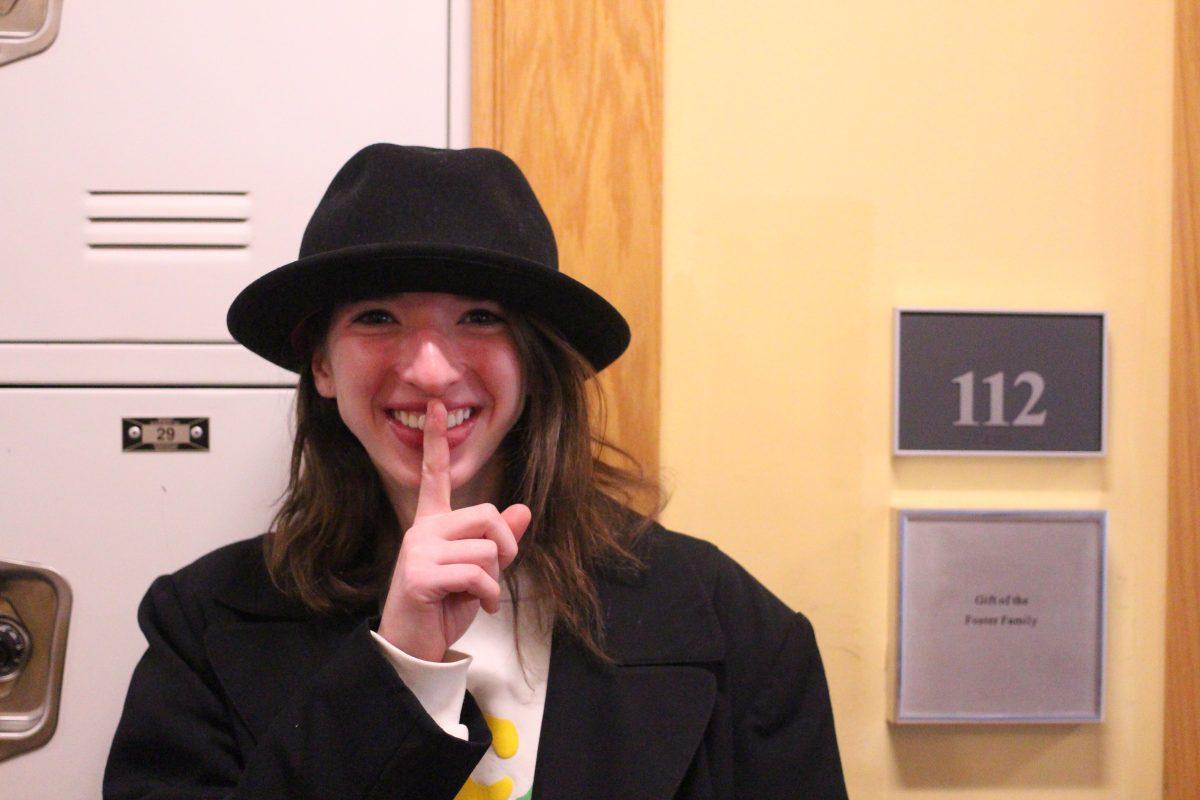The line that determines when a parent should stop supporting their child academically is a blurry one. From attending teacher conferences and checking in about grades to editing papers and enrolling students in extra programming, students have varied opinions on when parental involvement goes too far. However, most Nobles students report limited external support in their academics for numerous reasons.
Most feel that the Nobles curriculum covers topics that parents do not understand, and thus could not help with. “At this point, my work is too complicated for my parents to offer help if they wanted to, especially in classes like Calc or Physics,’’ Sasha Klevens (Class I). However, this is not limited to upperclassmen, when classes increase in difficulty and volume of material covered. “I’ve gotten to a point academically where the material we’re covering is not something my parents are extremely familiar with,” Samantha Shaff (Class IV) said. The introduction to Nobles’ unique learning track and curriculum leads to this shift away from parental involvement. “Nobles teaches things differently from the way my parents learned things,” Tucker Monroe (Class III) said. This lack of parental knowledge about the topics Nobles covers fosters academic independence.
“I’ve gotten to a point academically where the
material we’re covering is not something
my parents are extremely familiar with.”
However, there are exceptions when a subject aligns with a parent’s career. “My mom is a doctor, so if I had a biology question to ask her, she’d be helpful. But unless it’s related to what they do for work, generally [my] parents’ input is not that good,” Thomas Xue (Class I) said. This resonates with students across grades. “My dad is into biochemistry. But if I was asking something about history, then he couldn’t be helpful,” Samantha Pinkas (Class IV) said. However, sometimes discoveries of parental expertise come too late. “Last week I was talking to my dad about the Biology test I just took on DNA mediator proteins, and he said, ‘Oh. You know I discovered DNA mediator proteins,’” Josie Kelleher (Class I) said. However, this expertise can lead to expectations that create worry. “[Involvement] can just lead to unnecessary stress. It also takes time that would be better served studying,” Xue said.
Some parents try to counteract this unnecessary stress by involving themselves emotionally, rather than academically, in their child’s life. “[My parents] are more concerned about my workload and stress level rather than the specific classes I’m taking or grades I receive on tests,” Klevens said. They often try to act as a support network for their busy Nobles students. “I think if they were to get involved, it would be because they were concerned about me,” Amrit Hari Madhav (Class II) said. However, he wouldn’t necessarily seek out their assistance. “I think if they were to get involved, it would be because they wanted to,” he said.
Although many report limited parental involvement, a smaller subset of students say that parents are integral to their academic life. “I would say my parents are pretty involved. They help me on assignments and I tell them my grades,” Nahman Mack (Class III) said. He leans on them as another resource through which to learn and improve. Although he feels their impact is helpful, he does not find it necessary. “I don’t think my grades would be very different without my parents’ help. Some papers might be worse, but that’s about it,” he said. In the end, it boils down to what a student values more: grades or independence. To Mack, the choice is clear. “Grades, by far,” he said.
Others say parents are only helpful outside of Nobles’ curriculum, specifically during the college process. “I think my parents were helpful in thinking about and revising my essays with me,” Xue said. As a whole, however, he values his independence and thought critically about their feedback. “Oftentimes, their suggestions weren’t the best,” he said.
“I would say my parents are pretty involved. They help me on assignments and I tell them my grades.”
Many students report avoiding parental help. However, some may not admit to it for both disciplinary and social reasons. There are consequences in place for those who use excessive parental help, which limits discussion around the topic. Additionally, Nobles fosters a culture in which independence and personal achievement are valued. As much as community and support networks are echoed, many do not want to be viewed as someone whose parents completed assignments for them. They feel as though parental assistance dampens their achievement, and will therefore not discuss it.
So, when your teacher making a slow circle around the room, tossing around graded essays, and you see a satisfied grin spreading across one student’s face, think twice before assuming they had outside support. Generally, students report that they do not receive excessive parental support due to social stigma, a lack of parental knowledge on topics covered, and a parental desire to act as emotional support rather than academic.

